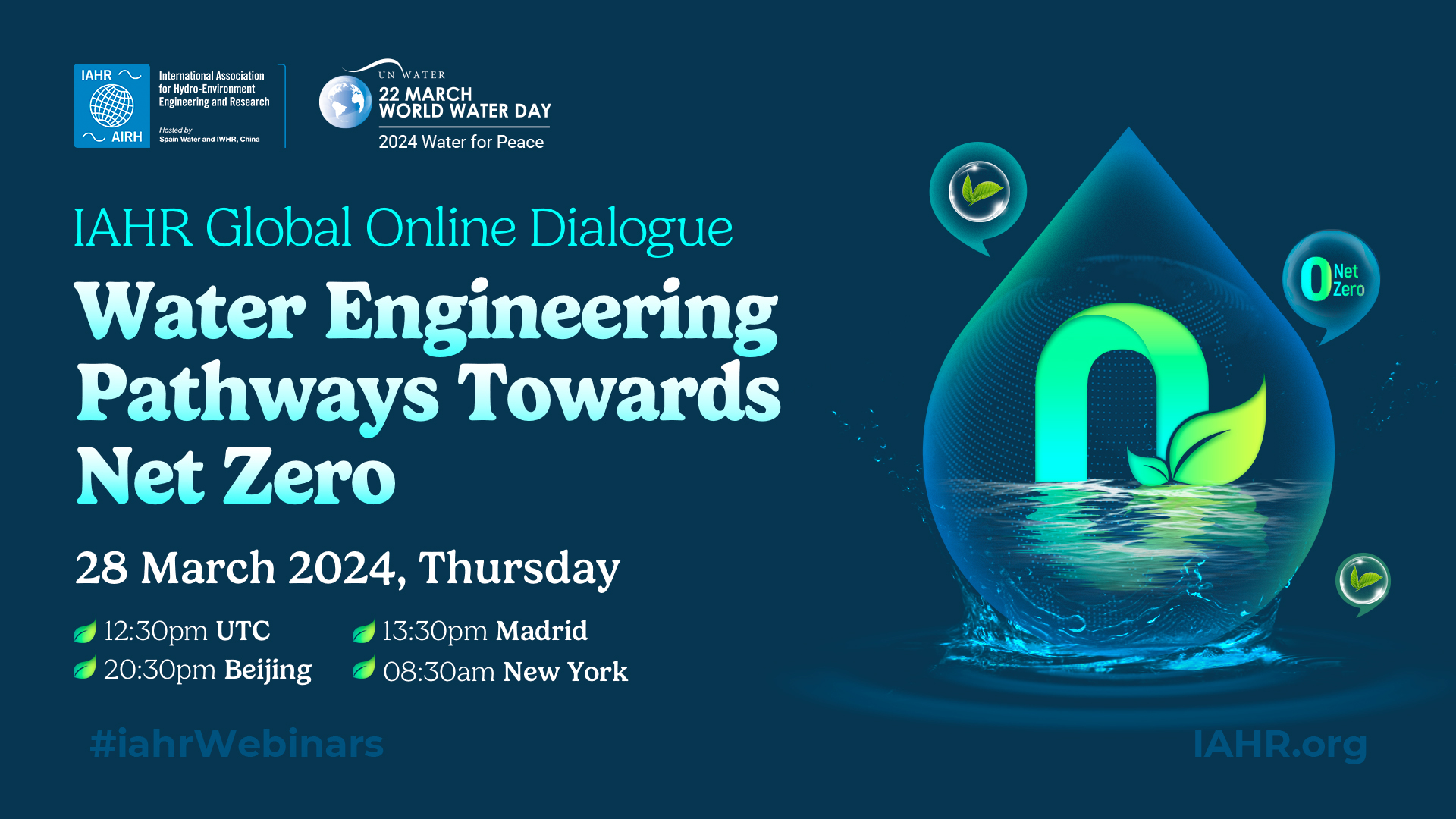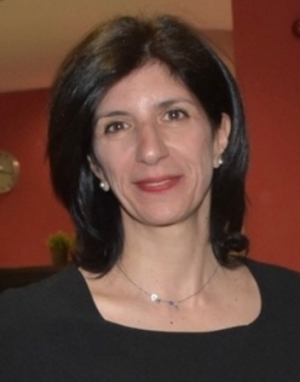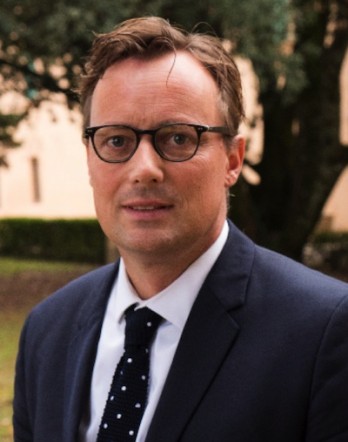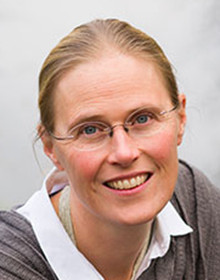Summary of IAHR webinar on water systems and engineering towards net zero
In a recent webinar organized on March 28, 2024, by the International Association for Hydro-Environment Engineering and Research (IAHR), a panel of distinguished experts convened to discuss water engineering’s role in the global stride towards net zero. The global online presentations and dialogue showed the complexities and opportunities at the nexus of water management and climate change.

Stefan Uhlenbrook
Anthony Slatyer
Insights from the experts
Elpida Kolokytha, Chair of IAHR’s Working Group on Sustainable Development Goals, also the chair of event, set the stage with an assertion: “Water affects weather patterns, temperature regulations, carbon absorption, ecosystems support and many other aspects of climate mitigation.” She emphasized the critical role of water in climate mitigation and highlighted the urgency to meet the Paris Agreement goals and SDG6 and outlined the importance of sustainable water management and reducing dependency on limited natural resources.
Stefan Uhlenbrook, Director of the World Meteorological Organization’s Hydrology, Water Resources and Cryosphere Branch, discussed the interplay between water requirements for climate mitigation measures and policy implications. He highlighted the significant water footprint of energy production, particularly in biofuel production and battery manufacturing for electric vehicles, emphasizing a symbiotic relationship between water and energy in the climate narrative: “There’s a lot of water requirements there when we change our lifestyle, when we change our energy consumption.”
Anthony Slatyer, Founding Member of the Water Policy Group, focused on the necessity of freshwater availability and effective water management in achieving net zero and other Paris Agreement goals. He talked about the benefits of efficient water use and the need for governments to balance multiple societal and environmental needs. He shared examples from Australia and emphasized the critical role of water engineering professionals.
Tomasz Kolerski, Chair of IAHR’s Technical Committee on Ice Research and Engineering, offered insights into cryosphere dynamics, discussing how climatic changes affect snow and ice melting in cold regions and their impact on water resources. He emphasized the challenges in managing water resources due to climate change, including flood risks and the need for effective water resource management.
Roberto Ranzi, Chair of IAHR’s Technical Committee on Climate Change Adaptation, discussed the potential role of the hyporheic zone and riparian areas in carbon sequestration and greenhouse gas emissions. He advocated for multidisciplinary approaches to understand and manage these areas better, highlighting their importance in the global carbon cycle.
Gabriele Freni, Chair of the IAHR/IWA Joint Committee on Hydroinformatics, explored the link between water scarcity and energy, focusing on urban water demand, energy consumption, and freshwater availability. He suggested smart water management, local treatment, and the use of renewable energy to reduce water supply costs.
Daisuke Nohara, Member of IAHR’s Technical Committee on Water Resources Management, discussed the interactions between hydropower energy production, climate change mitigation, and hydrological processes. He highlighted the challenges posed by climate change on hydropower potential, including the impact on water supply and the need for balancing power generation with other water uses.
Ellis Penning, Chair of IAHR’s Working Group on Nature-Based Solutions, spoke about nature-based solutions, their definitions, and how they contribute to climate mitigation and adaptation. She emphasized the importance of protecting and sustainably managing ecosystems for carbon sequestration and mitigating climate change impacts.
Michele Mossa, Chair of IAHR’s Technical Committee on Ecohydraulics, emphasized the importance of environmental conservation and biodiversity in renewable energy sources. He discussed the potential and challenges of ocean energy, such as wave and tidal energy, and stressed the need for sustainable management and stakeholder cooperation.
![1712473969391555.jpg 9_Discussion[00_12_02][20240402-143039-0].jpg](https://iahr.oss-accelerate.aliyuncs.com/upload/image/20240407/1712473969391555.jpg)
A confluence of ideas and a vision for the future
The discourse transcended traditional boundaries, weaving through topics like land use, the water-energy-climate interplay, and strategies for resource management in an era of climatic uncertainty. The experts advocated for a holistic, integrated approach, acknowledging the challenges but also the potential of informed, collaborative action.
This IAHR webinar, showed the power of collective insights needed to work towards a sustainable future. It highlighted the necessity of innovative, adaptable, and sustainable water management strategies in the quest for net zero. As the experts conveyed, the journey to net zero is not a solitary path but a collective voyage, demanding a confluence of disciplines, a shared vision, and an unwavering commitment to our planet’s future.








